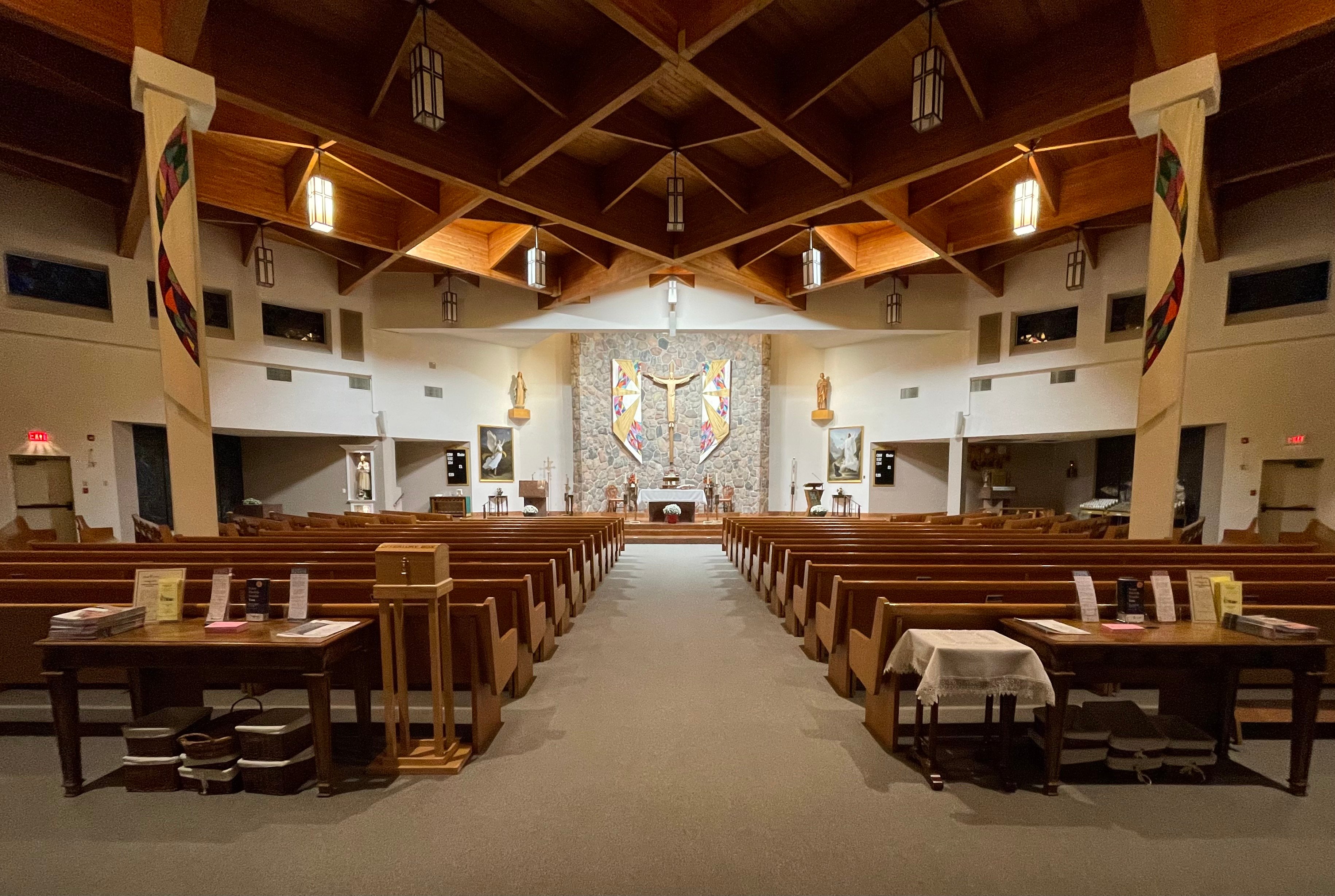- Home
- Our Community
- Our Faith
- Our Ministries
- Parish Life
- Bulletin
- Contact Us
- Search

Behold the Cross: Good Friday
Good Friday and Holy Saturday are the only two times when the Eucharist is not celebrated. It is a time where the Church sits in the reality that Christ is in the tomb. We sit in the reality of what our sinfulness has done. The Celebration of the Passion of the Lord opens with the priest going to the altar and prostrating himself in front of it, while the faithful kneel in prayer, cognizant of our need for redemption and the price paid for it.
It is impossible to avoid the effects of sin in our world: war, poverty, the wanton disrespect for our neighbors and our common home, it is unescapable. It is easy to lose hope on the brightest of days and today, the day we are given to kneel in front of bare altar, it can seem even more hopeless.
"O God, who by the Passion of Christ your Son, our Lord, abolished the death inherited from ancient sin by every succeeding generation, grant that just as, being conformed to him, we have borne by the law of nature the image of the man of earth, so by the sanctification of grace we may bear the image of the Man of heaven." This option for the prayer that starts the liturgy reminds us very clearly of the reason for Christ's sacrifice. However, it also reminds us very clearly that even at this moment there is cause of hope.
"May abundant blessing, O Lord, we pray, descend upon your people, who have honoured the Death of your Son in the hope of their resurrection: may pardon come, comfort be given, holy faith increase, and everlasting redemption be made secure." The Prayer over the People that is said at the end of the Celebration of the Passion of the Lord, gives us parting words of comfort and hope. We have hope in the resurrection and in our redemption. In commemorating the Passion of the Lord we commemorate the very action that gives us that hope, Christ's death and ultimate victory over death.
During the adoration of the Holy Cross an antiphon may be sung which says "We adore your Cross, O Lord, we praise and glorify your holy Resurrection, for behold, because of the wood of a tree joy has come to the whole world".
On Good Friday we are able to sit in what seems to be a paradox. We adore an instrument of death as a means of joy and salvation. In the midst of darkness, we are able to see some light. Good Friday isn't Easter. We are not meant to wiz past the suffering of Christ and the effects of our sinfulness. However, as we sit with it, we are reminded that Good Friday isn't the end, Easter is. Death does not win. Darkness does not overtake light. And so we can kneel in front of an empty altar and we can adore an instrument of torture and death because we know that by the wood of the Cross, joy has come to the whole world.
We adore you O Christ and we Bless you. Because by your Holy Cross you have redeemed the world.
Rebecca Spellacy is the Associate Director of Liturgy for the Office of Formation for Discipleship in the Archdiocese of Toronto.
